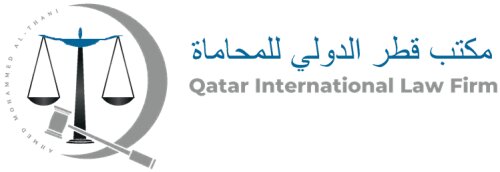Best State, Local, and Municipal Law Lawyers in Qatar
Share your needs with us, get contacted by law firms.
Free. Takes 2 min.
Or refine your search by selecting a city:
List of the best lawyers in Qatar
About State, Local, and Municipal Law in Qatar
State, Local, and Municipal Law in Qatar refers to the legal frameworks governing the administrative divisions and local governance structure within the country. Qatar's legal system is primarily based on Islamic law, but also incorporates elements of civil law. The country is divided into municipalities, with each having its local councils that address both local governance and administrative responsibilities. These laws cover a wide spectrum including land use, zoning, public health, and safety regulations. The Ministry of Municipality and Environment plays a significant role in enforcing these laws and ensuring coherence in their application across Qatar.
Why You May Need a Lawyer
There are several situations where individuals or businesses might require legal assistance in the realm of State, Local, and Municipal Law in Qatar:
- Real Estate and Land Use: Navigating zoning laws, construction permits and real estate transactions can be complex and often requires legal guidance.
- Business Licensing: Local laws require businesses to obtain specific licenses and permits to operate legally. Understanding these requirements can be challenging without legal support.
- Regulatory Compliance: Ensuring compliance with public health and safety regulations is critical for businesses, and failure to comply can lead to fines or closure.
- Disputes with Local Authorities: Individuals or businesses may face issues or disputes with local municipalities over various administrative decisions.
- Environmental Laws: Compliance with local environmental regulations is essential for certain industries and projects.
Local Laws Overview
Key aspects of local laws in Qatar that are relevant to State, Local, and Municipal Law include:
- Zoning Regulations: Laws that govern land use and dictate how certain areas can be used or developed.
- Building Codes: Specifications and guidelines for construction projects to ensure safety and compliance with local standards.
- Public Health Regulations: Laws pertaining to the safety, hygiene, and health standards businesses must adhere to.
- Environmental Protection Acts: Regulations concerning the environmental impacts of business and residential practices, including waste management standards.
- Municipal Tax Codes: Local fiscal policies regarding property and corporate taxes.
Frequently Asked Questions
What role do municipalities play in Qatar?
Municipalities in Qatar are responsible for local governance and administration, including urban planning, infrastructure maintenance, waste management, and enforcing local laws.
Can a business operate without a local license in Qatar?
No, businesses must obtain the relevant licenses and permits from local authorities to legally operate in Qatar. Operating without these licenses can lead to fines and business closure.
How are disputes with local authorities typically resolved?
Disputes can often be resolved through direct negotiation with the municipal authorities. However, if negotiations fail, legal action may be necessary.
What are some common zoning violations in Qatar?
Common zoning violations include unauthorized land use, construction without permits, and failure to adhere to building codes.
Do environmental regulations apply to all businesses?
Yes, all businesses must comply with Qatar’s environmental regulations, though the specific requirements may vary by industry.
How can I find information on local building codes?
Building codes are available through the Ministry of Municipality and Environment or local municipal offices.
Are public health regulations the same across all municipalities?
While there may be overarching public health standards, each municipality can implement additional regulations specific to their region.
What fines can be imposed for non-compliance with local laws?
Fines vary based on the nature and severity of the non-compliance, and may include monetary penalties or business closure.
Is legal assistance necessary for residential property transactions?
While not mandated, legal assistance can help ensure compliance with all local real estate laws and protect parties' interests during transactions.
How can businesses ensure compliance with municipal tax codes?
Businesses should consult with legal or financial advisors familiar with local tax codes to ensure proper compliance and avoid penalties.
Additional Resources
For further assistance, individuals and businesses can reach out to:
- Ministry of Municipality and Environment: Responsible for implementing and overseeing municipal laws.
- Qatar Chamber of Commerce and Industry: Provides resources and guidance for businesses operating in Qatar.
- Local Municipal Offices: Can provide specific information about municipal laws and regulations.
- Legal Firms Specialized in Municipal Law: Offer legal advice and representation for those in need of expert assistance.
Next Steps
If you need legal assistance in State, Local, and Municipal Law, consider taking the following steps:
- Identify Your Needs: Clearly outline the legal issues or questions you need assistance with.
- Consult with Specialists: Reach out to legal professionals who specialize in municipal law to discuss your situation.
- Gather Documentation: Collect any relevant documents that may be needed for your legal consultation or case.
- Explore Mediation: Before pursuing legal action, consider if mediation with local authorities might resolve the issue.
- Follow Professional Advice: Adhere to the guidance provided by legal experts to effectively navigate the legal landscape.
Lawzana helps you find the best lawyers and law firms in Qatar through a curated and pre-screened list of qualified legal professionals. Our platform offers rankings and detailed profiles of attorneys and law firms, allowing you to compare based on practice areas, including State, Local, and Municipal Law, experience, and client feedback.
Each profile includes a description of the firm's areas of practice, client reviews, team members and partners, year of establishment, spoken languages, office locations, contact information, social media presence, and any published articles or resources. Most firms on our platform speak English and are experienced in both local and international legal matters.
Get a quote from top-rated law firms in Qatar — quickly, securely, and without unnecessary hassle.
Disclaimer:
The information provided on this page is for general informational purposes only and does not constitute legal advice. While we strive to ensure the accuracy and relevance of the content, legal information may change over time, and interpretations of the law can vary. You should always consult with a qualified legal professional for advice specific to your situation.
We disclaim all liability for actions taken or not taken based on the content of this page. If you believe any information is incorrect or outdated, please contact us, and we will review and update it where appropriate.
Browse state, local, and municipal law law firms by city in Qatar
Refine your search by selecting a city.
















